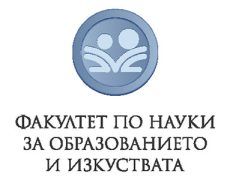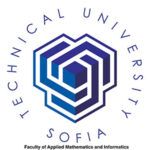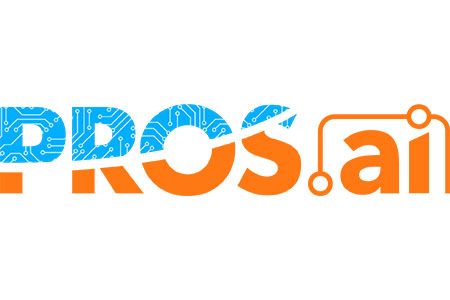Decoding GenAI:
Guest lecture from Silicon Valley AI expert –
Dr. Michael Wu
WHEN
April 18, 2024
Availability
Space is limited!
WHERE
Bulgarian Academy of Science
Bulgaria, Sofia, 1040
1 “15 Noemvri” Str.
We are reaching the limits of the lecture hall’s capacity and there might be only standing room available, so registrants are strongly advised to arrive early on 4/18 to secure a seat.
Agenda
08:30 AM | Welcome
09:00 – 10:15 AM | Decoding GenAI: The Science Behind the Magic of ChatGPT
10:15 – 10:45 | Coffee break
10:45 – 12:00 PM | Navigating the Limits of GenAI in Business Decisions—Beyond Productivity
12:00 – 13:00 PM | Light lunch
Contact Details
Registration Contact

Angelina Nikolova
People & Culture
PROS
Email: anikolova@pros.com
Phone: +359 2 434 9445
Web: https://pros.com/
Academic Contact

Alexander I. Iliev, PhD
Associate Professor Institute of Mathematics and Informatics
Bulgarian Academy of Sciences
Email: al.iliev@math.bas.bg
Web: https://math.bas.bg/?lang=en
The Bulgarian Academy of Sciences stands as Bulgaria’s premier scientific authority. It engages in research, educational initiatives, and activities of both national and international significance, addressing issues pivotal to the advancement of Bulgarian society. The Academy actively fosters the growth of science and innovation, recognizing them as essential for the nation’s economic development. It plays a vital role in the European Research Area.
Established in 1947, the Institute of Mathematics and Informatics (IMI) has emerged as Bulgaria’s foremost institution for research and education in its field, offering high-quality training. It has adopted a strategic, long-term approach to align with the primary directions in the evolution of mathematics, informatics, and information technology. The IMI, unique within the Bulgarian Academy of Sciences for its focus on mathematics, also leads in informatics and computer science across Bulgaria.
The Institute is dedicated to advancing mathematics and informatics by conducting research and incorporating these disciplines into national educational programs and methodologies at all educational levels.
Currently, the Academy encompasses 42 independent scientific entities and operates based on democratic principles. It employs roughly 3,000 scientists, who represent about 15% of the scientific community in Bulgaria. Notably, the Academy is responsible for approximately half of the nation’s scientific contributions.
Decoding GenAI: The Science Behind the Magic of ChatGPT
ChatGPT is akin to modern sorcery. With it, no subject is beyond the reach of the curious, including Generative AI (GenAI). However, ChatGPT often fails to offer an intuitive yet deep enough understanding of GenAI that enable leaders to leverage it effectively in business. In this captivating learning experience, we aim to shed light on the science that powers GenAI. Rather than telling you that GPT is a large language model (LLM), we will show you how LLM works, how it’s trained, what’s the training data, and why they will all hallucinate. Despite the certainty of hallucination, we will also provide a technique that enables businesses to use ChatGPT safely.
Moreover, we will go beyond ChatGPT and examine why GenAI is able to create captivating dialogues, stunning artwork, and melodious tunes that ignite the imagination. Throughout this exploration, we will also navigate the diverse landscape of GenAI’s business applications, including some great and not-so-great use cases. Through this interactive learning experience, we will “almost” make you an expert in GenAI by equipping you with the knowledge needed to wield this transformative technology responsibly to drive business innovation and growth.
Navigating the Limits of GenAI in Business Decisions—Beyond Productivity
Generative AI (GenAI) exhibits truly amazing capabilities, especially with data types characterized by high internal correlations, such as text, images, videos, and audio data. However, its efficacy encounters limitations when dealing with tabular data due to the lack of intra-dimensional correlations within such datasets. This poses a serious drawback in mission-critical business applications, as most important business decisions in today’s digital age rely on some sort of structured tabular data.
That’s why GenAI primarily functions as a productivity tool today. Despite the massive efficiency gain it offers, there aren’t many business applications of GenAI in mission-critical decisions that can directly drive profitability. While the profit equation is simple: Profit = Revenue – Cost, its maximization across industries is very complex, especially under the current volatile macroeconomic conditions. Successful AI profit optimization requires the harmony of 3 AI-related technologies. This session will also introduce these innovations and show how they can be seamlessly integrated with GenAI to drive the next level of profitable growth.
Speaker
Dr. Michael Wu
Chief AI Strategist, PROS
Dr. Michael Wu is one of the world’s premier authorities on artificial intelligence (AI), machine learning (ML), data science, and behavioral economics. He’s currently the Chief AI Strategist at PROS (NYSE: PRO), an AI-powered SaaS provider that helps companies monetize more efficiently in the digital economy. He’s been appointed as a Senior Research Fellow at the Ecole des Ponts Business School for his work in Data Science, and he serves as an advisor and a lecturer for UC Berkeley Extension’s AI programs.
Prior to PROS, Michael was the Chief Scientist at Lithium for a decade, where he focuses on developing predictive and prescriptive algorithms to extract insights from social media big data. His research spans many areas, including customer experience, CRM, online influence, gamification, digital transformation, AI, etc. His R&D won him the recognition as an Influential Leader by CRM Magazine along with Mark Zuckerberg, Marc Benioff and other industry giants.
Michael has served as a DOE fellow at the Los Alamos National Lab conducting research in face recognition and was awarded 4 years of full fellowship under the Computational Science Graduate Fellowship. Prior to industry, Michael received his triple major undergraduate degree in Applied Math, Physics, and Molecular & Cell Biology; and his Ph.D. from UC Berkeley’s Biophysics program, where he uses machine learning to model visual processing within the human brain. Michael believes in knowledge dissemination, and speaks internationally at universities, conferences, and enterprises. His insights have inspired many global enterprises and are made accessible through “The Science of Social,” and “The Science of Social 2”—two easy-reading e-books.






